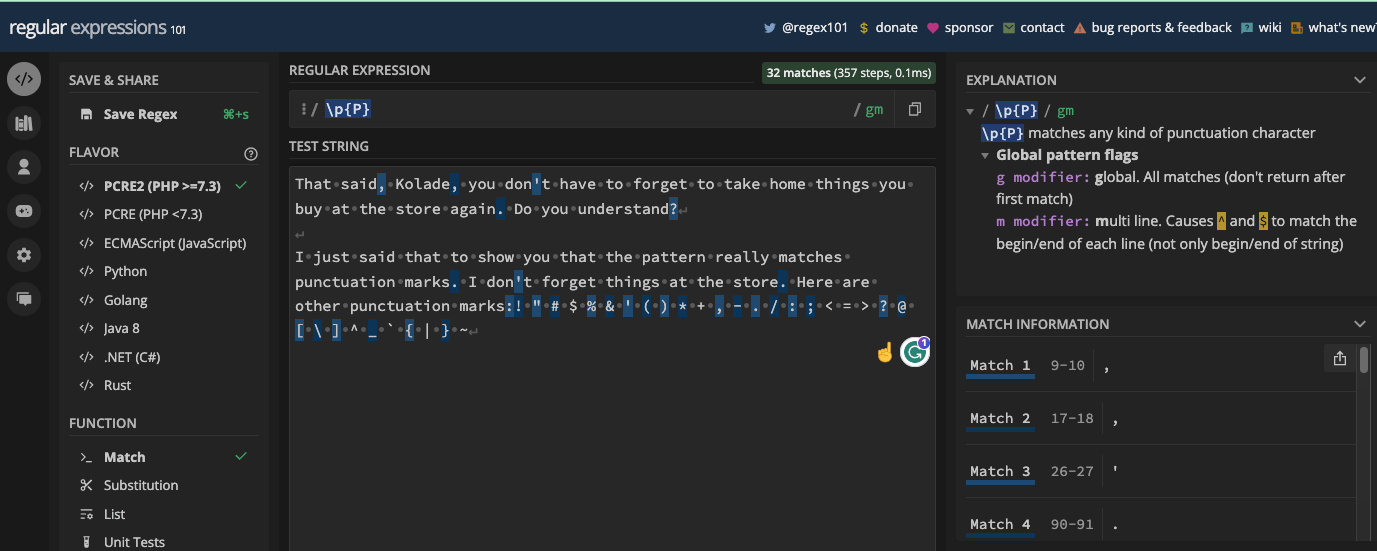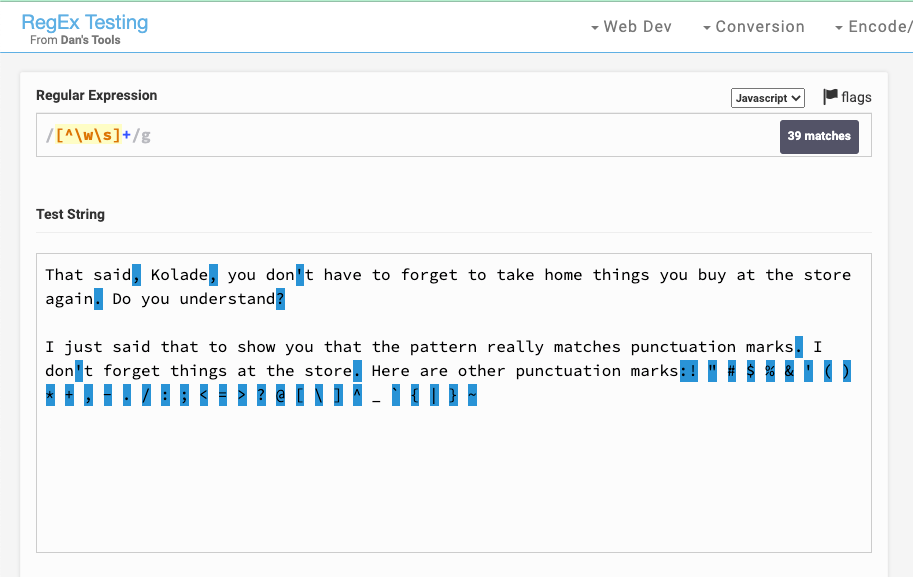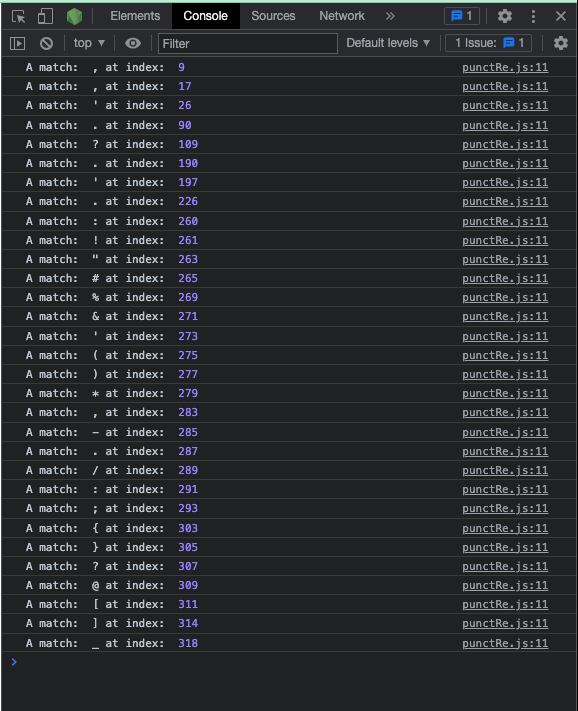In regular expressions, "punct" means punctuation marks. It is all non-word and non-space characters. "Punct" is a predefined character class in regular expressions, and you can use it in any regex flavor that supports it.
The Punct character class is denoted by \p{Punct} or simply \p{P}. It matches any punctuation mark in a string. This includes characters such as periods, commas, exclamation marks, and quotation marks.
Since there’s a way you can match all punctuation marks, that’s what we are going to look at in this article.
How to Match all Punctuation Marks in RegEx Engines
Few regex engines out there have regex flavors that support \p{P}. So, for those that support it, \p{P} would match all punctuation marks in them.

For regex engines that don’t support \p{P}, you can match all punctuation marks by negating word characters and space characters with the pattern [^\w\s]+:

How to Match all Punctuation Marks in JavaScript RegEx
If you want to use the pattern \p{P} to match all punctuation marks in JavaScript, you have to assign it the Unicode flag like this /\p{P}/u. Otherwise, it won’t work. Let’s see that in action:
const text = `That said, Kolade, you don't have to forget to take home things you buy at the store again. Do you understand?
I just said that to show you that the pattern really matches punctuation marks. I don't forget things at the store. Here are other punctuation marks:! " # $ % & ' ( ) * + , - . / : ; | < = > { } ? @ [ \ ] ^ _ `;
const regex1 = /\p{P}/gu;
const regex2 = /[^\w\s]+/g;
console.log(regex1.test(text)); //true
console.log(regex2.test(text)); //true
console.log(regex1.exec(text));
console.log(regex2.exec(text));
Since exec() would only return one match and test() would only return a Boolean, you can loop through the matches with exec() and while loop to see all of them:
const text = `That said, Kolade, you don't have to forget to take home things you buy at the store again. Do you understand?
I just said that to show you that the pattern really matches punctuation marks. I don't forget things at the store. Here are other punctuation marks:! " # $ % & ' ( ) * + , - . / : ; | < = > { } ? @ [ \ ] ^ _ `;
const regex1 = /\p{P}/gu;
const regex2 = /[^\w\s]+/g;
let match;
while ((match = regex1.exec(text)) !== null) {
console.log('A match: ', match[0], 'at index: ', match.index);
}

Conclusion
That’s how you can match all punctuation marks in regex engines and JavaScript. Don’t forget that if you’re using \p{P} to match punctuation marks, you have to use it with the Unicode flag like this /\p{P}/u. You can also apply the same to other programming languages.
If you want to learn more about regular expressions, you can use this video made by Beau Carnes of freeCodeCamp.
Keep coding!

